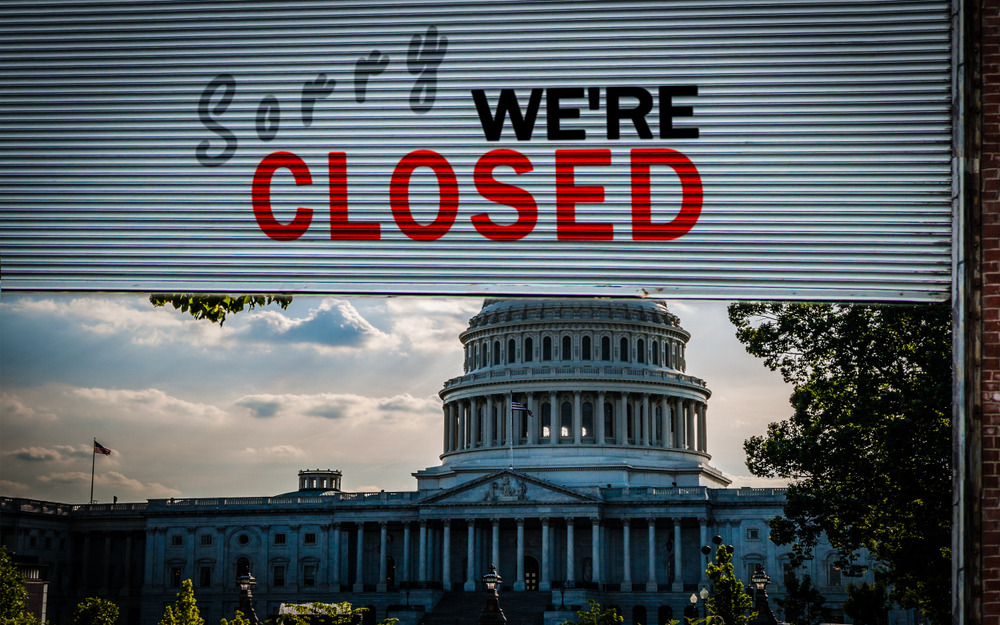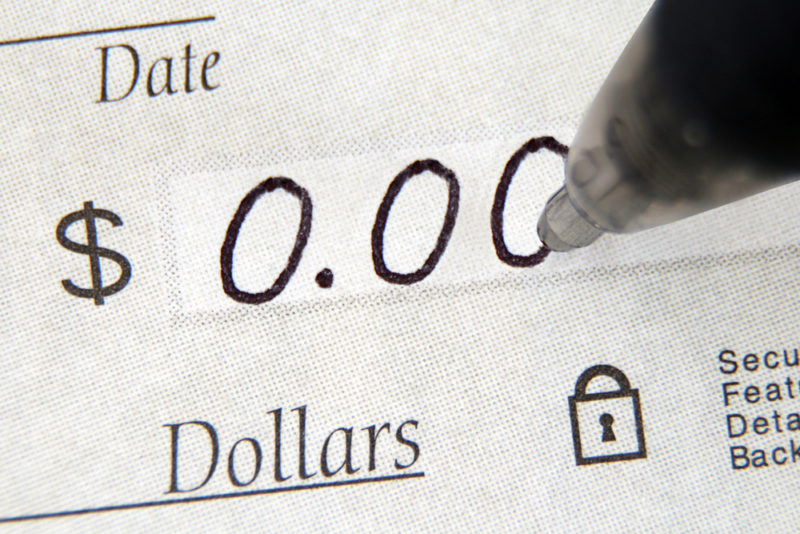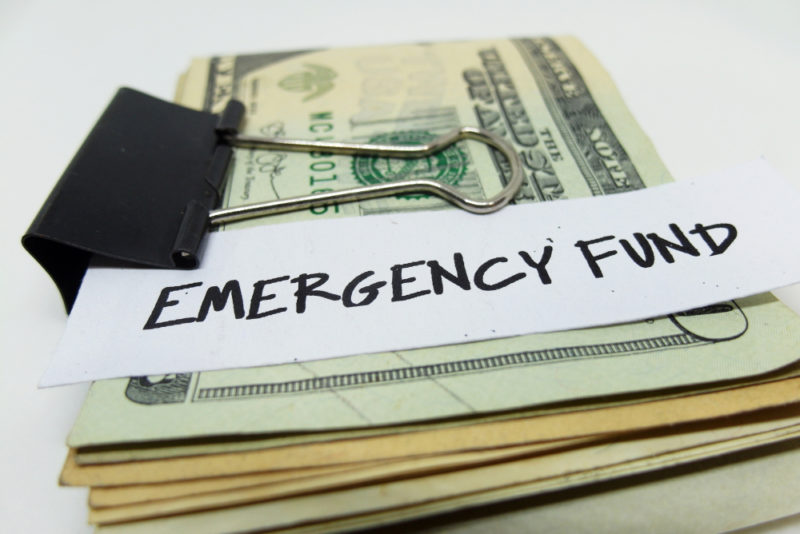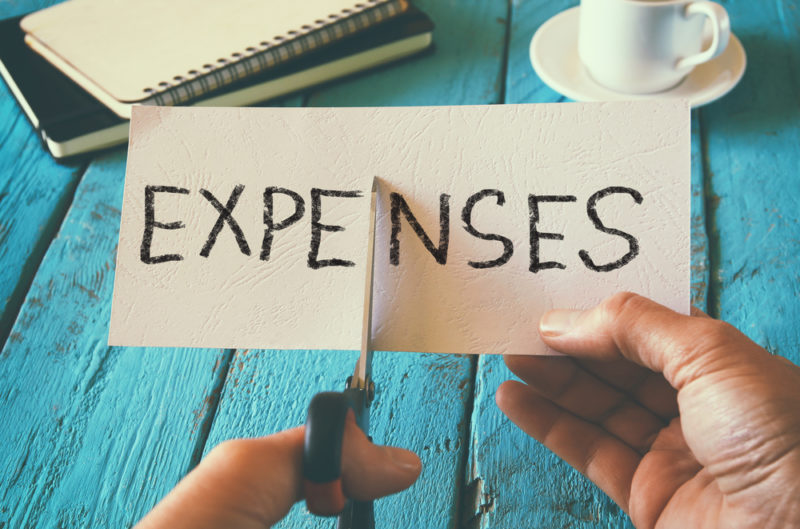Financial Lessons Learned from the Government Shutdown
by Gabriel Lewit

The government shutdown is over. Government workers have returned to their jobs and back pay should be arriving soon (if it hasn’t already). Things are back to normal… for now.
President Donald Trump announced on Friday, January 25th, a deal to reopen the government for three weeks after clashing with congressional Democrats over funding for a U.S.-Mexico border wall. An estimated 800,000 federal workers went without pay for 35 days, and an additional 1.2 million contractual workers also didn’t earn a paycheck, according to Bloomberg.
In truth, the last month has been an incredibly valuable learning moment for all of us. It’s exposed some difficult truths about our government, but more than that, it’s also exposed the fragile nature of the monetary and professional lives of many, many Americans.
As Financial Advisors, this experience has provided us with a great opportunity to step back and look at the reality of our client’s financial worlds. It’s also pointed at a few things we should all keep in mind as we move forward.
No Job is Permanent

Part of what caught so many government employees by surprise during the shutdown is the belief that their job was unconditionally stable and that they could rely on that paycheck every two weeks like absolute clockwork. Clearly, that was not 100% true.
Even government employees, who consider their jobs to be among the most stable, discovered this truth the hard way. You never know what is around the corner, so it’s best to always be prepared for the worst.
Here’s the fact: no job is perfectly secure. It doesn’t matter who is employing you or what the arrangement is. Employers can run into all sorts of unexpected problems, even ones as big as the federal government.
Unforeseen events can happen to any employee, too, transforming a stable job into a pink slip at the blink of an eye.
Never, ever lull yourself into complacency and believe that the job you have now will always be there and will always be stable. You should never act as if your next paycheck is a guarantee, because even if you have what seems like the safest job in the world, it’s not a guarantee.
You Must Protect Yourself with an Emergency Fund

Most experts recommend having three to six months of living expenses in a savings account. An account where the money is safe and easily accessible.
For those in debt or struggling to make ends meet, Dave Ramsey’s first step is to build a $1,000 emergency fund. No excuses. He advises to do anything (legal) to build this amount.
For most people, $1,000 will not cover a month without pay, but it is certainly a start and could keep someone from desperate acts in a time of need.
An emergency fund takes time and discipline to build. If you haven’t started building one, now is the time.
Think about it, if every federal employee had even one month’s worth of emergency savings, the shutdown would have been much less of an issue in terms of how ordinary people were affected. People would not have been panicking. People could have made rational decisions regarding their financial situation.
Note that when I talk about an emergency fund, I’m talking cash, not credit. Your credit card is not an emergency fund. It won’t be there for you during a natural disaster. It won’t be there for you if your identity is stolen. It won’t be there for you if you have credit issues. Cash is king in this situation.
If You Can’t Save, You Need to Look at Spending

If you look around your life and think that it is “impossible” to spend less than you earn, that it’s “impossible” to build up an emergency fund, that it’s “impossible” to pay down your debts in any reasonable time frame, the hard truth is that you’re living beyond your means.
If you ever want anything to be different in your life, you must change something significant about either your income or your spending.
There are essentially two ways to make a serious difference in your spending. You can either modify the small, frequently repeated expenses, in which a change that saves $0.10, $0.25, $0.50 or $1 can add up to a lot over the course of a year, or you can make a major move that in a single action saves hundreds.
One small budget move would be to start buying generic. It’s amazing how much more you pay for trash bags, pet food, and condiments just because of the label on the front. Purchase generic brands instead and you’ll be shocked at your savings.
Also, if you have been following the latest tv trends, you will know that there has been a huge number of people looking to cut the cord from the cable company. TV is a lot more mobile nowadays—and a lot less expensive. If you ditch the cable and get your football or Real Housewives fix from sites like Hulu, Netflix or Sling TV, you can save hundreds of dollars a year.
Big moves (that you can do once or maybe twice but save a lot each time) include moving to a less expensive place, shopping around for better auto and homeowners insurance, or eliminating a car and relying on mass transit.
Let’s take control of our spending and make sure we aren’t building a house with a weak foundation that will topple over with the next gust of wind or minor earthquake.
Develop a Teamwork Mentality

Finally, if the recent government shutdown has taught us anything, it should show us how important cooperation is. When both parties on the same team are unyielding, it can create a serious roadblock and have many ramifications.
If you are in a marriage or other shared-money responsibility situation, consider ways in which you can change your mindset.
This will require some honesty, self-reflection, and compromise. Saving comes easier for some while others like to spend more. Having a conversation early on about each person’s approach to money will help to solidify which financial approach the couple will take on.
Also, agreeing with what is considered a major purchase can prevent future arguments and playing the blame game.
Everyone’s viewpoint is different so there is no room for assumptions. Keep the end goal in mind which is to knock out all financial goals together. You owe it to yourself to live the life you have envisioned.
While the recent Government shutdown was a difficult time for many, it is important to always look at difficult situations such as this and find a key takeaway, or a few of them if you can, to learn from and use as you continue navigating through life. Even the hardest times can teach us valuable and important lessons, although if it may not seem like it at the time.
